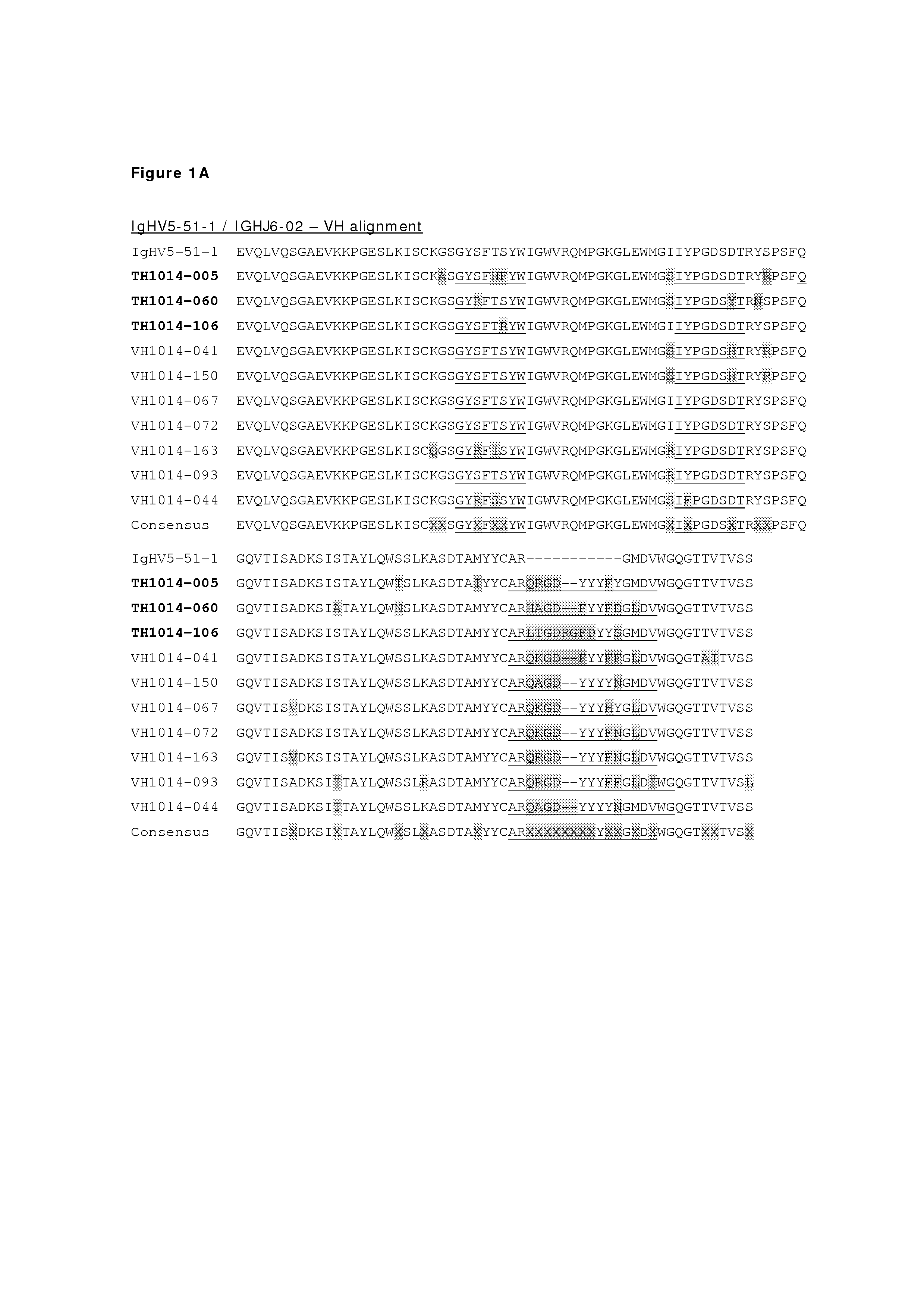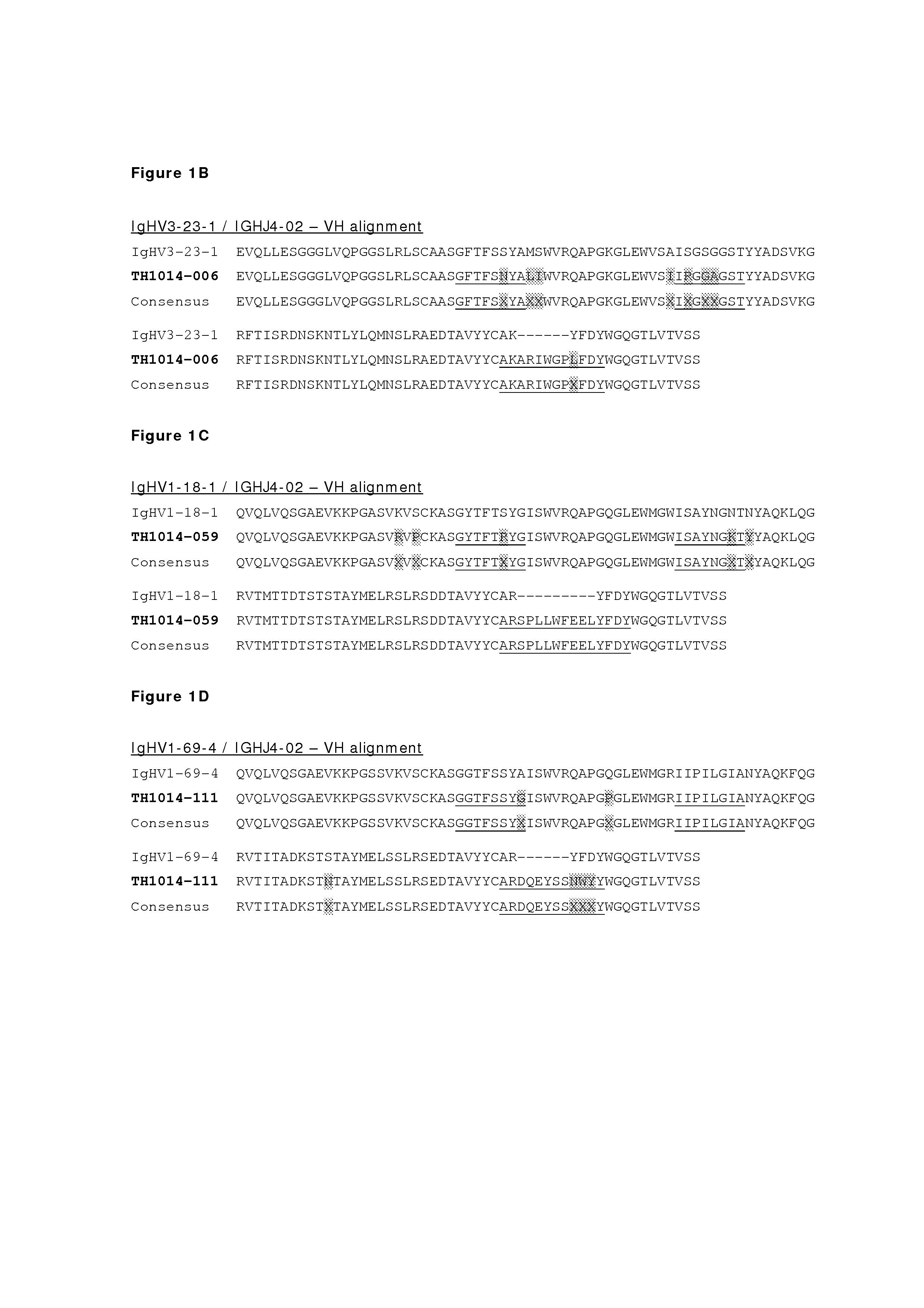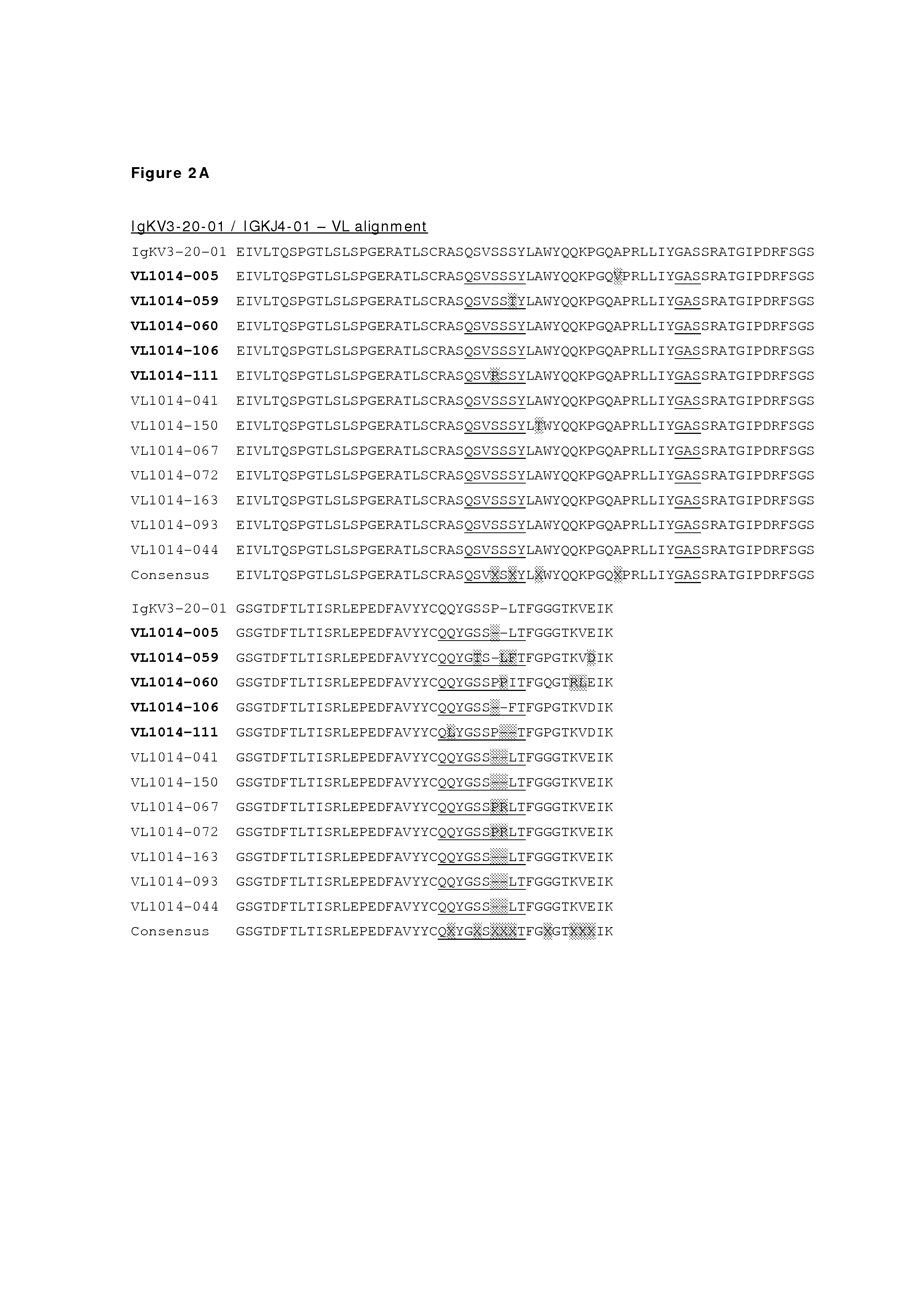Monoclonal antibodies against her2 epitope
a technology of epitope 2 and monoclonal antibodies, which is applied in the direction of peptides, drug compositions, and infusion cells, can solve the problems of impaired internalization of her2, and achieve the effect of high specificity and effective, without promoting cell proliferation
- Summary
- Abstract
- Description
- Claims
- Application Information
AI Technical Summary
Benefits of technology
Problems solved by technology
Method used
Image
Examples
example 1
Expression Constructs for HER2 and HER2 Variants
[0314]Fully codon-optimized constructs for expression of full length HER2 (1255 aa, Swissprot P04626), the extracellular domain (ECD) of HER2 (Her2-ECDHis, aa 1-653 with a C-terminal His 6 tag), the naturally occurring HER2 splice variant (Her2-delex16, resulting from exon 16 deletion and lacking aa 633-648) and a truncated form of the HER2 receptor (Her2-stumpy, aa 648-1256), were generated. The construct contained suitable restriction sites for cloning and an optimal Kozak sequence (Kozak, M., Gene 1999; 234(2):187-208.). The constructs were cloned in the mammalian expression vector pEE13.4 (Lonza Biologics; Bebbington, C. R., et al., Biotechnology (NY) 1992; 10(2):169-75) and fully sequenced to confirm the correctness of the construct.
example 2
Expression Constructs for Pertuzumab, C1 and F5
[0315]Fully codon-optimized constructs for expression of the heavy chain (HC) and the light chain (LC) of the IgG1 antibodies pertuzumab, C1 and F5 in HEK cells, were generated. The variable regions encoded by these constructs are identical to those described in U.S. Pat. No. 6,949,245 for pertuzumab heavy chain and light chain and U.S. Pat. No. 7,244,826 for C1 and F5 heavy and light chain. For C1 and F5, the mammalian expression vectors p33G1f and p33K or p33L (pcDNA3.3 (Invitrogen)) containing the fully codon optimized constant region for the human IgG1 heavy chain (allotype f), the human kappa light chain or the human lambda light chain, respectively, were used. For pertuzumab, the mammalian expression vectors pG1f (pEE12.4 (Lonza Biologics) and pKappa (pEE6.4 (Lonza Biologics), containing the fully codon-optimized constant region for the human IgG1 heavy chain (allotype f) and the human kappa light chain, respectively, were used.
[0...
example 3
Transient Expression in HEK-293 or CHO Cells
[0317]Freestyle™ 293-F (a HEK-293 subclone adapted to suspension growth and chemically defined Freestyle medium, (HEK-293F)) cells were obtained from Invitrogen and transfected with the appropriate plasmid DNA, using 293fectin (Invitrogen) according to the manufacturer's instructions. In the case of antibody expression, the appropriate heavy chain and light chain expression vectors were co-expressed.
[0318]pEE13.4Her2, pEE13.4Her2-delex16 and pEE13.4Her2-stumpy were transiently transfected in the Freestyle™ CHO—S (Invitrogen) cell line using Freestyle MAX transfection reagent (Invitrogen). Expression of HER2 and Her2-delex16 was tested by means of FACS analysis as described below.
PUM
| Property | Measurement | Unit |
|---|---|---|
| Fraction | aaaaa | aaaaa |
| Fraction | aaaaa | aaaaa |
| Fraction | aaaaa | aaaaa |
Abstract
Description
Claims
Application Information
 Login to View More
Login to View More - R&D
- Intellectual Property
- Life Sciences
- Materials
- Tech Scout
- Unparalleled Data Quality
- Higher Quality Content
- 60% Fewer Hallucinations
Browse by: Latest US Patents, China's latest patents, Technical Efficacy Thesaurus, Application Domain, Technology Topic, Popular Technical Reports.
© 2025 PatSnap. All rights reserved.Legal|Privacy policy|Modern Slavery Act Transparency Statement|Sitemap|About US| Contact US: help@patsnap.com



